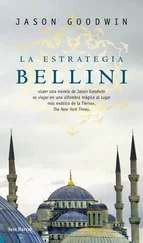Jason Goodwin - The snake stone
Здесь есть возможность читать онлайн «Jason Goodwin - The snake stone» весь текст электронной книги совершенно бесплатно (целиком полную версию без сокращений). В некоторых случаях можно слушать аудио, скачать через торрент в формате fb2 и присутствует краткое содержание. Жанр: Исторический детектив, на английском языке. Описание произведения, (предисловие) а так же отзывы посетителей доступны на портале библиотеки ЛибКат.
- Название:The snake stone
- Автор:
- Жанр:
- Год:неизвестен
- ISBN:нет данных
- Рейтинг книги:4 / 5. Голосов: 1
-
Избранное:Добавить в избранное
- Отзывы:
-
Ваша оценка:
- 80
- 1
- 2
- 3
- 4
- 5
The snake stone: краткое содержание, описание и аннотация
Предлагаем к чтению аннотацию, описание, краткое содержание или предисловие (зависит от того, что написал сам автор книги «The snake stone»). Если вы не нашли необходимую информацию о книге — напишите в комментариях, мы постараемся отыскать её.
The snake stone — читать онлайн бесплатно полную книгу (весь текст) целиком
Ниже представлен текст книги, разбитый по страницам. Система сохранения места последней прочитанной страницы, позволяет с удобством читать онлайн бесплатно книгу «The snake stone», без необходимости каждый раз заново искать на чём Вы остановились. Поставьте закладку, и сможете в любой момент перейти на страницу, на которой закончили чтение.
Интервал:
Закладка:
He looked around the room. Everything was in order, everything left as the widow would have left it after she’d been in to clean, the shawls folded, the clothes bags dangling on a row of hooks, the jug of water standing in the bowl.
But someone else had been in here.
Searching. Looking for something small enough to be hidden in a crock of rice.
Yashim picked up a folded shawl and spread it out across the divan beneath the window. He picked up the rice jar and tipped it forward, spilling the grain onto the shawl. Nothing but a mound of rice. He looked inside the jar. It was empty.
He put the rice back into the crock with his two hands at first, and then with the little scoop. He brushed a few grains of rice off the rim and replaced the lid.
The Frenchman, Lefevre. How long had he left him on his own? Two hours, three. So he’d woken up and wanted to make something to eat.
Lefevre didn’t cook. Didn’t know olives from sheep droppings.
I believe everything I read in books.
Yashim frowned.
He went to his bookcase and looked along the shelves. The books were in no particular order, which told him nothing. Perhaps they had been disarranged, perhaps not. He tried one or two at random, and they slid out easily.
He pushed the jars back to the wall and carried on chopping the onions.
He sluiced olive oil across the base of an earthenware dish.
He halved a lemon and squeezed its juice into the oil. He dried his hands on a cloth.
He went to the bookcase and ran his finger along the middle shelf until he found the book.
It had been a gift from the sultan’s mother, the valide. She’d received it unbound, no doubt, in a thick manila wrapper. Before she passed it on she’d had it bound in imperial green leather, with the colophon of the House of Osman, an egret’s feather, worked onto the spine in gold leaf. Title and author, stamped on the spine in gold.
GORIOT-BALZAC. It was a rare gift.
At the embassy Lefevre’s satchel had contained half a dozen books. They were the very books the terrified man had spilled out apologetically across the floor, before he died. Except for one, Yashim remembered. There had been a paperbound copy of Goriot, slightly tatty around the spine, which he hadn’t seen before.
He pulled the Balzac from the shelf and opened the leather cover.
Lefevre, at least, had found a hiding place.
You hide jewels on a woman’s neck. A man can lose himself in a crowd.
Yashim sighed: the valide’s gift was ruined beyond repair.
It takes a book to hide a book.
38
Enver Xani fitted his key into the lock and pressed the door gently. Beyond the door lay a cool, dim chamber that echoed to the sound of running water. He stepped inside, grateful to escape the heat and dust of the city, and bent down to unstrap his shoes. He laid them carefully on a stone, pushed the door shut behind him, and stood waiting for his eyes to adjust to the gloom.
The coldness of the water still surprised him. In winter, the brothers said, it seeped into your very marrow; you spent the day wet, frozen, moving between the siphons and the cisterns of the city in fur-lined boots, your hands and hair permanently clammy, the joints of your fingers and toes swollen with the cold. It wasn’t work for old men. Which was why most of the watermen took an apprentice with them on their rounds; invariably one of their own sons.
In summer one could be grateful for the chill and the darkness, for the quiet and refreshing sound of flowing water. Outside, the dust was baked in the hot streets, stirred up by the passage of many feet, untouched by the slightest breath of wind. In here, in any one of the dozen or so siphons and cisterns dotted around the city, one could step into the cool stillness of the forests, fifteen miles off, from where the water began its long, slow descent toward a thirsty capital. It was a privilege. Enver had paid well for it.
He hung the key on a hook, the way he had been shown; it certainly would not do to drop a key into the maze of channels that swirled and eddied at his feet. In three months, he had been taught everything that an apprentice could be expected to know after years of following his father on the job: only by following the rules could he perhaps make up for the experience he lacked. For the brothers, the rules were like a religious ritual; just as this siphon room was, in its way, like a church or mosque, cool and quiet amid the heat and bustle of the city.
Enver took a stick from its place on the wall and dipped it into the broad receiving tank, measuring its depth. The water from the incoming pipe flowed gently into it at one end; on the far side, in the shadow, the water brimmed against the rim of the tank, sliding noiselessly over seven shallow scoops into the distribution basins. At the appointed hour he would stop up the outlets to basins three, five and six, open the pipe to release the flow from basin two, and pass the signal down the main bore to the next man.
Enver felt a squeeze of anxiety in his chest as he ran over the mnemonic verses he had learned. 3,5,6. Then 2. They belonged to the rules, as did the tarnished hollow ball of tin, which would shortly shoot from the delivery pipe and set his work in motion. His job now was to watch for the ball.
Enver squatted at the edge of the receiving tank, frowning as he focused on the spout. The water purled over the lip of the spout and tumbled in a thick coil into the tank, on and on, without stopping. From time to time he saw the coil flicker; sometimes he felt sure that the water was arriving, not in a ceaseless stream but by a series of almost imperceptible pulses, like blood through the veins of a man’s wrist, gluck-gluck-gluck, and he had to close his eyes and breathe deeply to dispel the illusion. But was it an illusion? Many of the brothers were able to tell precisely when the ball was set to arrive by the most minute change in the volume of delivery, the smallest shift in the music of the waterfall. “Steady, now. Stand by,” they’d say, ever alert to the subtle change, breaking off a conversation. And a few moments later the tin ball would drop into the tank, sink a few inches, and then bob up to the surface and glide softly to the edge. “Not yet,” Enver thought; but he had misjudged, for at that moment a tiny scraping noise announced the ball’s arrival at the near edge of the tank. He hadn’t even seen it come: it must have dropped from the spout when he closed his eyes, trying to decipher the rhythm of the water.
Disappointed, he stared down into the tank. He should pick up the ball, block the necessary distribution pipes with the rags, and then drop the ball into the exit pipe, to float away on its long journey through Istanbul. 3,5,6. Then 2. Light from a spangling of small holes in the roof of the chamber danced and dissolved on the surface of the water, as black and depthless as a pool of oil. With a sigh he bent forward and retrieved the tin ball. For a moment the light seemed to bounce from the surface around the chamber, a sudden brightening that Enver caught in the corner of his eye; then it settled once more, and he shivered. He had heard the brothers’ stories of ifrits and demons who haunted the darker corners of the cisterns; but it was growing cold now, too.
He gripped the ball in his fist and stared down at his own reflection in the black water.
For a fraction of a second, he caught sight of a second face, staring up out of the dark tank.
Enver had no time to wonder. He gasped, and something took him by the back of his head, so that the last thing Enver Xani saw in this world was the sight of his own face rushing toward him, its mouth open in a silent scream.
39
It was late in the evening when Yashim arrived at the gate of Topkapi Palace. Two halberdiers scrambled to their feet as he entered, and one of them placed his foot carelessly over a pair of dice on the stones.
Читать дальшеИнтервал:
Закладка:
Похожие книги на «The snake stone»
Представляем Вашему вниманию похожие книги на «The snake stone» списком для выбора. Мы отобрали схожую по названию и смыслу литературу в надежде предоставить читателям больше вариантов отыскать новые, интересные, ещё непрочитанные произведения.
Обсуждение, отзывы о книге «The snake stone» и просто собственные мнения читателей. Оставьте ваши комментарии, напишите, что Вы думаете о произведении, его смысле или главных героях. Укажите что конкретно понравилось, а что нет, и почему Вы так считаете.












